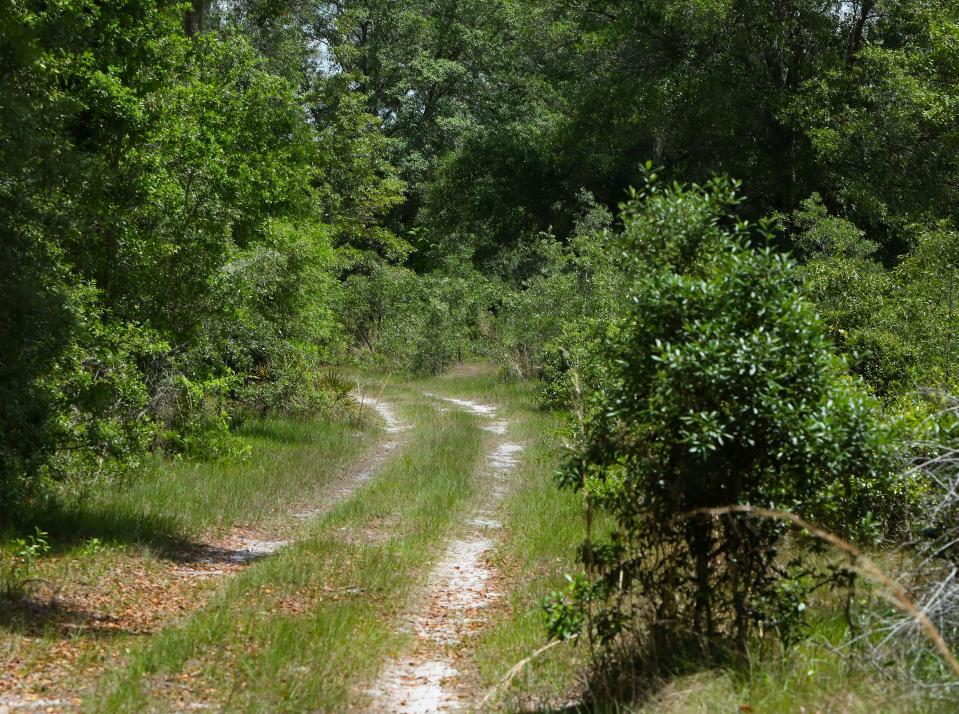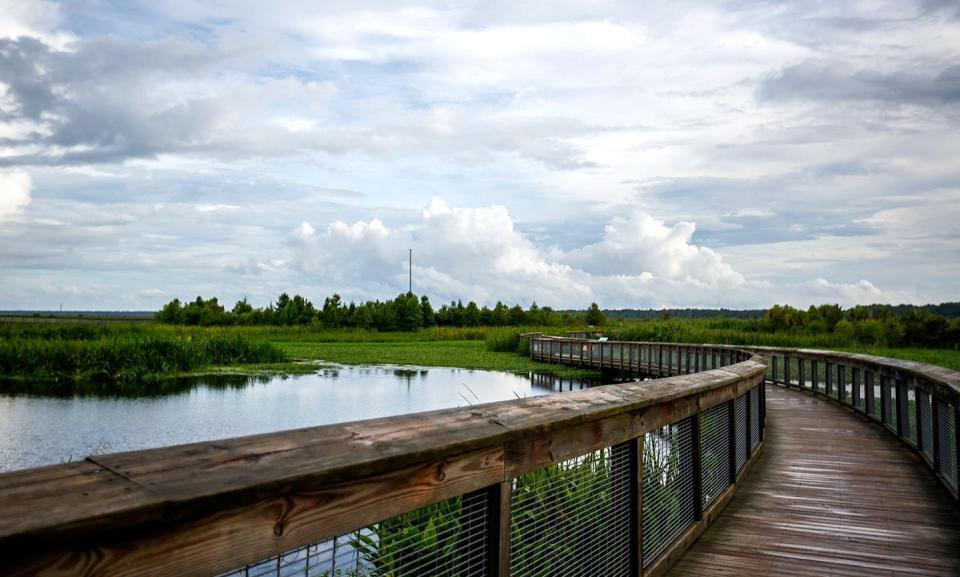A wake-up call to local leaders: Lee property should be protected, not developed
Our local springs are both polluted with excess nitrogen and depleted due to excessive groundwater withdrawals. So why would city and county commissioners, elected to ensure a healthy future in Alachua County, support more development that will make a bad springs problem worse?
The ongoing discussion of the development of the Lee property on Parker Road is the spark that has ignited this criticism of the county/city leadership status quo. Preliminary reports indicate that the 4,000-acre, undeveloped property might include two new golf courses and hundreds of new homes and residents.
By proposing this plan, it appears that the owners wish to reap the property value benefits of their grandfather’s 1950s land purchase. In a shamelessly capitalistic society, who can blame them?
But golf courses and intensive urban development pose acute threats to the Floridan Aquifer and our local springs. The water and fertilizer used by a golf course on a highly vulnerable karst landscape will cause aquifer impacts comparable to an intensive dairy operation. Urban development, both commercial and high-density residential, will consume more groundwater (less spring flow) and create more fertilizer and human wastewater (more springs nitrogen pollution and noxious algae).

Does Gainesville really need more golf courses or intensive development? I can tell you the springs and their native biota do not need any more golf courses or condos.
At a more local level, Gainesville does need more quail, fox squirrels and gopher tortoises that will likely be displaced by the proposed project. And the springs that feed the Santa Fe River need more recharge and clean groundwater to replace the flows they have already lost.
While the Lee family loves this property, they have embarked on a path that, with government sanction, will inevitably reduce wildlife habitat in Alachua County and further deplete and pollute regional groundwater resources. As an alternative, perhaps they might consider joining the many proud land owners in Alachua County who have donated or sold their property to the county or a land trust for a reasonable return while preserving its natural values into perpetuity.
On a positive note, the Lee property offers a win-win-win opportunity for the city, county and Lee family. I suggest that the city buy the Lee property for a reasonable sum and convert a portion of it to a groundwater recharge wetland comparable to the Sweetwater Wetlands Park.

The city currently discharges up to 10 million gallons of partially treated municipal wastewater down a deep well directly into the potable Floridan Aquifer. That water contains elevated concentrations of nitrogen, the principal pollutant impairing our region’s springs. While Gainesville Regional Utilities is already planning a smaller recharge wetland nearby, the 75-acre site is not sufficiently large to handle the wastewater generated in west Gainesville.
A groundwater recharge wetland on the Lee property could be sized to remove all of the existing and future wastewater nitrogen, and the existing deep well could be plugged and never used again. Imagine the wildlife and human use benefits of a wetland city park 10 times larger than Sweetwater!
With an eye to protecting groundwater levels in the Floridan Aquifer and resulting higher spring flows, the city may ultimately be required to cut back on its existing groundwater pumping (about 20 million gallons per day).
More from Robert Knight:
Removing Rodman dam would be manna from heaven for manatees
Kings Bay restoration will only be achieved by reducing groundwater pumping
Stop subsidizing those who harm springs through pumping, pollution
The city’s Murphree Wellfield is in the worst possible place in terms of reducing springs flows. The current pumping rate has created a 600-square-mile “capture zone” where groundwater is diverted from the springs feeding the Santa Fe River.
Creating a second city wellfield on the Lee property to serve west Gainesville in an area of higher groundwater transmissivity would allow a significant decline in pumping at Murphree and help restore aquifer levels and sustainability.
With this opinion piece I challenge city and county officials, in collaboration with the Lee family heirs, to meet and jointly envision a healthy future for Gainesville and Alachua County. Perhaps someday elected leaders and community citizens will work together to restore and protect this land and the water we call home.
Robert Knight is director of the Howard T. Odum Florida Springs Institute in High Springs. You can gain additional understanding about protecting our region’s groundwater and surface water natural resources by reading his new book “Saving Florida’s Springs – A Prescription for Springs Health.” This column is part of The Sun's Messages from the Springs Heartland series.
Join the conversation
Send a letter to the editor (up to 200 words) to letters@gainesville.com. Letters must include the writer's full name and city of residence. Additional guidelines for submitting letters and longer guest columns can be found at bit.ly/sunopinionguidelines.
Journalism matters. Your support matters.
Get a digital subscription to the Gainesville Sun. Includes must-see content on Gainesville.com and Gatorsports.com, breaking news and updates on all your devices, and access to the eEdition. Visit www.gainesville.com/subscribenow to sign up.
This article originally appeared on The Gainesville Sun: Robert Knight: Lee property should be protected, not developed

